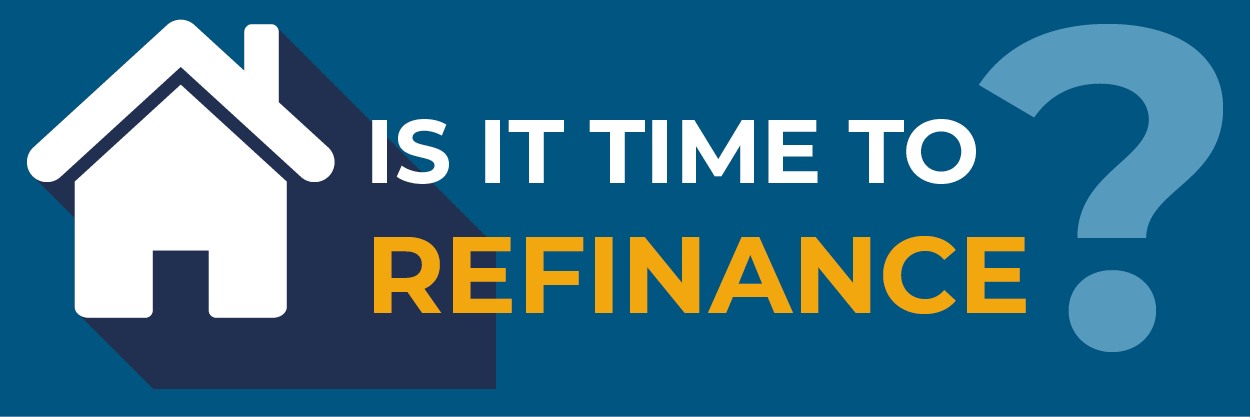Recent Posts
categories
Archives
- Tips to Lower your Electric BillPosted: 5 years ago
- 5 Easy Home Improvement Projects & Upgrades For the WinterPosted: 5 years ago
- Benefits to buying in the winterPosted: 5 years ago
- Cash In with a Cash-Out RefinancePosted: 5 years ago
- Mortgage MythsPosted: 5 years ago
- Q&A: All About Flooring — Hardwood, Carpeting, Tiling, LaminatePosted: 5 years ago
- Tip: 3 Foolproof Social Media Marketing TipsPosted: 6 years ago
- Tips for Hosting a Stress-Free Holiday DinnerPosted: 6 years ago
- Is a Mortgage Refinance Right for You?Posted: 6 years ago
- Check Your Disaster Supplies KitPosted: 6 years ago
- Create an Early Holiday Shopping BudgetPosted: 6 years ago
- 9 Ways to Make Moving Day EasierPosted: 6 years ago
- July 2018 Market Update – Twins Cities RegionPosted: 6 years ago
- Fall Homeowners ChecklistPosted: 6 years ago
- Scam Alert: Spoofed IRS Phone NumbersPosted: 6 years ago
- 15 Years of First Class MortgagePosted: 6 years ago
- How to buy a second homePosted: 6 years ago
- Q&A: Lawn Watering SecretsPosted: 6 years ago
- Troubleshoot Your Air ConditioningPosted: 6 years ago
- Your Mortgage, What to Expect: Clear To ClosePosted: 6 years ago
- Twins Cities Region Monthly Indicators – APRIL 2018Posted: 6 years ago
- Your Mortgage, What to Expect: UnderwritingPosted: 6 years ago
- Your Mortgage, What To Expect: Property AppraisalPosted: 6 years ago
- 3 Tips to Improve your Credit Score and Score a Lower Interest RatePosted: 6 years ago
- Changing Interest Rates Have A High Impact On Purchasing PowerPosted: 6 years ago
- The Myth of Multiple Mortgage Credit InquiriesPosted: 6 years ago
- Things to do BEFORE you buy a home.Posted: 6 years ago
- March Tech Tip: Pack Smarter With PackPointPosted: 6 years ago
- 4 Ways to Pay Off Your Mortgage EarlyPosted: 6 years ago
- Clean House in a HurryPosted: 6 years ago
- Your Mortgage, What To Expect: Document ReviewPosted: 7 years ago
- Chill Winter Utility BillsPosted: 7 years ago
- Six Tips to Help Your Home Sell This FallPosted: 7 years ago
- 4 Things to Know About Closing CostsPosted: 7 years ago
- Understanding Your Credit ScorePosted: 7 years ago
- Equifax Data Breach: What should you do now?Posted: 7 years ago
- Should You Refinance Your FHA to a Conventional Loan?Posted: 7 years ago
- 6 Ways to Save on Paint ProjectsPosted: 7 years ago
- Q&A: Mortgage InsurancePosted: 7 years ago
- How to Keep Your House Cool this SummerPosted: 7 years ago
- Mortgage Education: “What’s the Point?”Posted: 7 years ago
- Q&A: Spotting a Spoof SitePosted: 7 years ago
- Moving ChecklistPosted: 7 years ago
- Squash Marital Money SquabblesPosted: 7 years ago
- April 2017: Twin Cities Real Estate Market UpdatePosted: 7 years ago
- Your Spring Guide to Home StagingPosted: 7 years ago
- March 2017: Twin Cities Real Estate Market UpdatePosted: 7 years ago
- Don’t be a Victim — Four Ways Protect Yourself from Refinance ScamsPosted: 7 years ago
- Local Market Update: Minneapolis Area Association of RealtorsPosted: 7 years ago
- First-Time Homebuyers: Where to startPosted: 7 years ago
- Dear First Class Mortgage:Posted: 7 years ago
- First Class Mortgage. Our Expertise, Your Peace of Mind.Posted: 8 years ago
10
October
Is a Mortgage Refinance Right for You?
Posted by Are you looking to reduce your monthly mortgage payments, get a lower interest rate, convert your home equity into cash, or switch to a fixed-rate loan? Consider refinancing your home loan.
Are you looking to reduce your monthly mortgage payments, get a lower interest rate, convert your home equity into cash, or switch to a fixed-rate loan? Consider refinancing your home loan.
But before you jump into the refinance process, remember that everyone’s financial circumstances are different. Loan balances, interest rates, remaining months on the loan term – they all vary depending on each situation. However, there is one thing that is, and always will be, the same for everyone: math. And it’s only after you and your First Class Mortgage Consultant “do the math” that you should decide whether or not to refinance.
How does refinancing work?
Refinancing is the process of replacing an existing mortgage with a new loan. Typically, people refinance their mortgage to reduce their monthly payments, lower their interest rate, or change their loan program from an adjustable rate mortgage to a fixed-rate mortgage. Additionally, some people need access to cash to fund home renovation projects or paying off various debts and will leverage the equity in their house to obtain a cash-out refinance.
Goals for refinancing:
- Lowering your monthly payment: With a lower monthly payment, you are free to put the savings toward other debts and other expenditures or apply those savings towards your monthly mortgage payment and pay off your loan sooner.
- Remove private mortgage insurance (PMI). Some homeowners who have enough property appreciation or principal paid off will not be required to pay mortgage insurance which will reduce your total monthly payment.
- Reducing the length (term) of your loan. For homeowners who took out a mortgage in the early stages of their career, a 30-year mortgage may have made the most financial sense. But for those who want to pay off their mortgage sooner, reducing the loan term can be an attractive option.
- Switching from an adjustable-rate mortgage to a fixed-rate loan. When you have an adjustable-rate mortgage, your payment can adjust up or down as interest rates change. Switching to a fixed-rate loan with reliable and stable monthly payments can give homeowners the security of knowing that their payment will never change.
- Using the equity in your home to take out cash. With rising home values, you may have enough equity to take out a cash-out refinance. This money can be used to finance home improvements, pay off debts or to fund large purchases.
Regardless of your goal, the actual process of refinancing works much in the same way as when you applied for your first mortgage: you’ll need to collect financial documents and submit a mortgage refinancing application before you can be approved.
Is Now the Right Time to Refinance?
Ultimately, it’s critical to crunch the numbers to see if refinancing makes sense for you. Our website has a refinance mortgage calculator designed to help you calculate what your new payment would be.
Even if you’ve been unable to refinance in the past, loan programs and rates are always changing. These changes, along with rising home values in many markets, may enable you to reduce your rate or lower your monthly payments.
But you don’t have to go at it alone! Our mortgage consultants are always ready to answer your questions and guide you along the path to a successful refinancing.
09
July
How to buy a second home
Posted by Lake season is here! If you are considering purchasing a vacation property, now is a great time. No matter what type of vacation property – lakeshore, rural or urban — you’ll follow the same basic steps when it comes to financing a second home. Here are some things to consider as you purchase a second property.
Lake season is here! If you are considering purchasing a vacation property, now is a great time. No matter what type of vacation property – lakeshore, rural or urban — you’ll follow the same basic steps when it comes to financing a second home. Here are some things to consider as you purchase a second property.
Setting a budget:
When financing a second home purchase, it’s essential to get in touch with a mortgage consultant BEFORE you begin your property search.
Together with your mortgage consultant, we will help you determine a budget that takes into account, maximum mortgage payment, annual homeowner’s insurance policy, and taxes.
While these additional expenses are not factored into your mortgage scenario, other costs to keep in mind are travel costs – to and from the property, regular maintenance & repairs, utilities, furnishings, and household items.
Financing a second home:
While some people can afford to pay cash for a vacation home, financing makes more sense for a majority of future second homeowners. Here are two options to consider:
Conventional Loan:
Financing a second home is different than purchasing a primary residence. FHA home loans are not an option since they can only be used to buy a primary residence. That leaves a conventional loan, which you have to qualify for on top of any mortgage debt on your primary home.
Typically, you will need to make a down payment of at least 10 percent, meet credit standards and debt-to-income requirements, and provide documents for income and asset verification.
Cash-out Refinance:
Home values are on the rise across the country. Because of this, many homeowners have built substantial equity in their primary residence in just the past few years. Cash-out refinancing can be an excellent way to liquidate your home equity and then use it to purchase a vacation home.
Rental vs. Vacation Home
For some, owning a vacation home may sound like an unattainable dream. But, with the rise of services like Airbnb, it is now easier than ever to receive occasional rental income.
If you do plan to rent the property out, know that financing is different for rental homes and vacation properties. Qualifying is more straightforward when purchasing a property as a second home.
Finding your dream
The market for lake homes is heating up, and new properties are being added to the market daily. If you are not already working with an agent, we would be happy to recommend some REALTORS that specialize in lakes country. They will take the time to help you find your perfect home away from home.
Once you have found a property, your First Class Mortgage consultant will help you determine the best way for you to purchase it.
18
April
The Myth of Multiple Mortgage Credit Inquiries
Posted by Don’t let the fear of multiple credit inquiries keep you from shopping for a mortgage.
Don’t let the fear of multiple credit inquiries keep you from shopping for a mortgage.
Fact: Your credit score plays a significant role in your life. Scores can determine insurance rates, employment, opening a bank account, and borrowing money like mortgage lending.
If you would like a refresher course on how your credit scores work, check out our blog post on credit scores.
Applying for too much new credit in a short period of time can adversely affect your hard-earned score. So it is natural to be nervous about shopping for a mortgage. But the major credit bureaus see the value of comparison shopping – and that’s why they cut homebuyers some slack.
Types of Credit Inquiries
Credit inquiries are broken down into two main groups: hard inquiries and soft inquiries. “Hard inquiries” may affect a credit score, while “soft inquiries” do not affect a score. It is important to understand the difference when applying for new credit.
Soft inquiries (also known as “soft pulls”) typically occur when a person or company pull your credit as part of a background check. Since soft inquiries are not an application for new credit, they won’t affect your credit scores.
Hard inquiries (also known as “hard pulls”) occur when a financial institution, such as a lender or credit card issuer, checks your credit when making a lending decision. Your mortgage consultant will need to take a look at your credit report to complete your pre-approval you to purchase a home. Granting a lender permission to pull your scores – constitutes a hard inquiry and can lower your credit.
The good news is the “hit” to your credit is typically just 3-5 points.
Shop Multiple Lenders, Get One “Ding” On Your Credit Report
The important concept is that — unlike applying for multiple credit cards — when someone applies for several mortgages, they won’t get “dinged” for multiple, consumer-initiated inquiries. This is because when they apply for five credit cards, they’ll likely get the option to use them all five. By contrast, with the mortgage applications, they’ll only get approved once.
As such, the credit bureaus have made it a formal policy to permit “rate shopping.” In fact, it’s encouraged.
Borrowers have the right to shop with as many lenders as they like. The secret though is for a client to do their shopping for a mortgage within a limited 14-45-day time frame. If you time the inquiries correctly, the credit bureaus will acknowledge the first credit pull as a “ding” — remember, only 3-5 points — but will ignore each subsequent check.
No matter how many credit checks you do, the mortgage inquiries will always get lumped into a single credit score “hit.”
So, happy shopping! We would love a chance to work with you. To get started, give us a call or apply online today!
Sources: myFICO.com, www.consumerfinance.gov
03
August
Should You Refinance Your FHA to a Conventional Loan?
Posted byIf you are like most first-time homeowners, your first mortgage was an FHA loan. Your FHA loan gave you the ability obtain financing, requiring only minimal down payments and fair-to-good credit scores. While this was a perfect fit for you at the time, you now may be looking to save some money. One way to do this is to refinance into a conventional loan.
One significant advantage of switching to a conventional loan is that, with the right loan-to-value ratio, it can eliminate mortgage insurance. While conventional loans have stricter credit requirements, and typically require borrowers to have at least 20% equity in their homes, any mortgage insurance provision cancels once your house reaches a 78% loan-to-value ratio.
Additionally, refinancing to a conventional mortgage may allow you to take out a larger home loan.
Refinancing does come with costs, such as closing fees, and may require you to present many of the same documents during the application process as you did with your original home purchase. Plus, you may also need to pay for an appraisal of your home.
Checklist: When Is a Good time to Refinance from an FHA to a Conventional Mortgage?
If you’re still not sure whether you should refinance from an FHA loan into a conventional mortgage? Take a couple of minutes to answer the following questions. They can help you decide if a refinance is right for you.
1. What are my goals?
2. Does refinancing make financial sense?
3. What is the current value of my home?
4. What is my existing home equity?
5. Can I afford the refinancing closing costs and fees?
6. Can I provide all of the necessary documentation?
Considering a Refi? Let us help!
Our expert mortgage consultants can help you evaluate your current loan situation and help you identify if a refinance is right for you. Give us a call today!
Source: PennyMac, Link
15
March
Don’t be a Victim — Four Ways Protect Yourself from Refinance Scams
Posted by Buying or refinancing your home may be one of the most exciting, yet complex, financial decisions you’ll ever make. Like First Class Mortgage, many lenders, appraisers, and real estate professionals stand ready to help you get a nice home and a great loan. Unfortunately, scam artists are getting smarter, stealing millions of dollars from homeowners by promising too-good-to-be-true financing, foreclosure relief, and refinancing programs.
Buying or refinancing your home may be one of the most exciting, yet complex, financial decisions you’ll ever make. Like First Class Mortgage, many lenders, appraisers, and real estate professionals stand ready to help you get a nice home and a great loan. Unfortunately, scam artists are getting smarter, stealing millions of dollars from homeowners by promising too-good-to-be-true financing, foreclosure relief, and refinancing programs.
1. Never, ever pay fees upfront.
If they ask you to pay a fee up front to refinance, a red flag should be going up in your mind. It is illegal to request or accept fees upfront of promised results.
2. Beware of unsolicited offers from strangers.
If you receive an email, phone call or letter from a bank, lender or loan modification company, don’t trust the display name. Use the “look, don’t click” method to explore the email. Hover your mouse over any links embedded in the body of the email to see if the link address looks weird. If it does look strange, do not click it.
3. Pause before signing or sending any payments.
When pressured to sign papers or send payment immediately, hit the pause button. Have a professional review the documents before you sign something you end up regretting. Remember that you can always Contact Us.
4. Seek help from a trusted partner.
Before refinancing or modifying your loan, give us a call to see what we can do to help. If you need to modify your mortgage because you’re struggling to make payments, or if you’ve received a foreclosure notice, your lender might work with you on negotiating repayment terms.
Think you’ve been a victim of fraud or identity theft?
First, file a police report with your local law enforcement agency, then contact the Federal Trade Commission, your state attorney general’s office, and the Better Business Bureau.
Sources:
* Federal Trade Commission: www.consumer.ftc.gov/articles/0100-mortgage-relief-scams
* Federal Bureau of Investigation: fbi.gov/investigate/white-collar-crime/mortgage-fraud
* NeighborWorks ® America: www.loanscamalert.org


